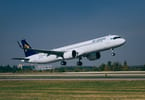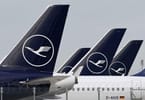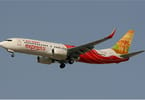CAIRO, Egypt – Investigators of the Russian plane crash in Egypt are “90 percent sure” the noise heard in the final second of a cockpit recording was an explosion caused by a bomb, a member of the investigation team told Reuters on Sunday.
The Airbus (AIR.PA) A321 crashed 23 minutes after taking off from the Sharm al-Sheikh tourist resort eight days ago, killing all 224 passengers and crew. Islamic State militants fighting Egyptian security forces in Sinai said they brought it down.
“The indications and analysis so far of the sound on the black box indicate it was a bomb,” said the Egyptian investigation team member, who asked not to be named due to sensitivities. “We are 90 percent sure it was a bomb.”
His comments reflect a much greater degree of certainty about the cause of the crash than the investigation committee has so far declared in public.
Lead investigator Ayman al-Muqaddam announced on Saturday that the plane appeared to have broken up in mid-air while it was being flown on auto-pilot, and that a noise had been heard in the last second of the cockpit recording. But he said it was too soon to draw conclusions about why the plane crashed.
Confirmation that militants brought down the airliner could have a devastating impact on Egypt’s lucrative tourist industry, which has suffered from years of political turmoil and was hit last week when Russia, Turkey and several European countries suspended flights to Sharm al-Sheikh and other destinations.
It could also mark a new strategy by the hardline Islamic State group which holds large parts of Syria and Iraq.
Asked to explain the remaining 10 percent margin of doubt, the investigator declined to elaborate, but Muqaddam cited other possibilities on Saturday including a fuel explosion, metal fatigue in the plane or lithium batteries overheating.
He said debris was scattered over a 13-km (8-mile) area “which is consistent with an in-flight break-up”.
WHAT TO TAKE AWAY FROM THIS ARTICLE:
- Lead investigator Ayman al-Muqaddam announced on Saturday that the plane appeared to have broken up in mid-air while it was being flown on auto-pilot, and that a noise had been heard in the last second of the cockpit recording.
- The noise heard in the final second of a cockpit recording was an explosion caused by a bomb, a member of the investigation team told Reuters on Sunday.
- Asked to explain the remaining 10 percent margin of doubt, the investigator declined to elaborate, but Muqaddam cited other possibilities on Saturday including a fuel explosion, metal fatigue in the plane or lithium batteries overheating.






















